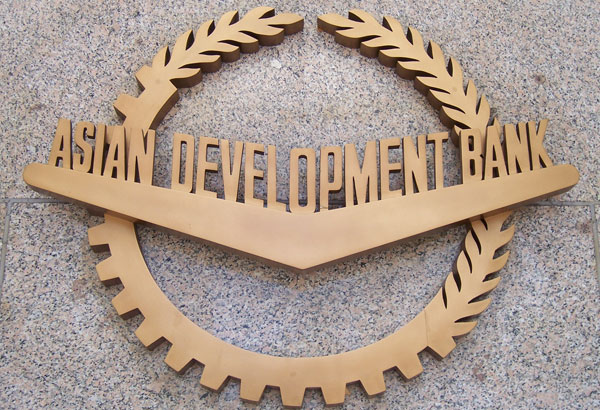ADB reveals GDP growth, inflation forecasts for Central Asian states

By Aynur Karimova
The Asian Development Bank expects Kazakhstan's GDP to remain low at 0.7 percent in 2016, but recover slightly to 1 percent in 2017.
The Bank's Outlook 2016, which was released on March 30, says that continued weak oil prices slashed the Central Asian nations' growth and pushed the current account into deficit for the first time since 2009.
"Policy must address financial vulnerabilities that stem from low oil prices, persistent problems with nonperforming loans, and further dollarization," the bank said.
The ADB experts believe that higher countercyclical expenditure, the Expo 2017 in Astana, and the anticipated entry into production of the long-delayed Kashagan oilfield mitigate the prospective drop in private consumption.
ADB further added that Kazakhstan's average annual inflation is projected to accelerate to 12.6 percent in 2016, reflecting the impact of currency depreciation and a low base during the first 3 quarters of 2015, and then slow to 4.6 percent in 2017 as higher interest rates, weak domestic demand, and price controls restrain further increases.
The country's total external debt is expected to increase from 84.6 percent of GDP at the end of 2015 to well above 100 percent at the end of 2016.
Kyrgyzstan
In other Central Asian nation - Kyrgyzstan, according to ADB, growth declined to 3.5 percent from 4 percent as slower expansion in industry offset gains in agriculture and services.
"Growth is expected to slow to 1.0 percent in 2016, with continued weakness in the external environment, and recover slightly to 2.0 percent in 2017, assuming some improvement in the Russian Federation and other trade partners," the report said.
Currency, depreciation is fueling inflation and exacerbating a debt problem that needs urgent attention.
The ADB experts believe that Kyrgyzstan's economy remains vulnerable to shocks from its largest enterprise, the Kumtor gold mine, where a drop in output cut 1 percent from growth in 2015 and disputed mine ownership could disrupt production in 2016.
ADB predicts inflation in Kyrgyzstan to jump to 10 percent in 2016 due to further depreciation of the national currency, the som in response to weakness in the Kazakh tenge and the Russian ruble, as well as "because tariffs on imported goods must rise to EEU levels."
Also, inflation is expected to ease to 8 percent in 2017 in line with smaller exchange rate and tariff adjustments.
"Remittances will likely fall another 10 percent in 2016 with continued recession in Russia, where nearly all Kyrgyz migrants work, and possible further ruble depreciation," the report said.
Tajikistan
ADB, touching upon Tajikistan, said that growth of this country slowed to 6 percent and trade declined, reflecting lower commodity prices, weak private investment, and remittance shortfalls.
The Bank forecasts Tajikistan's growth to slow to 3.8 percent in 2016, reflecting the continuing recession in Russia, before recovering to 4 percent in 2017 with some recovery in the external outlook.
"Second-round effects of developments in 2015, along with weaker economic performance in Tajikistan’s other main trade partners (China, Kazakhstan, and Turkey) and continued low global commodity prices, will limit remittances and foreign investment, constraining demand and consumption in 2016," the report said.
The ADB experts believe that a better business environment would boost local production and employment, alleviating excessive dependence on remittances.
Inflation in Tajikistan is projected to accelerate to 8.5 percent in 2016 and slow to 7.5 percent in 2017, reflecting the lagged effect on import prices of depreciation in 2015 and somewhat less depreciation in 2016.
"Weak demand should limit price hikes in services. Higher inflation could result if foreign exchange restrictions are further tightened, or if depreciation exceeds expectations," the report said.
Turkmenistan
In Turkmenistan, an energy-rich Central Asian nation, growth slowed to 6.5 percent in 2015 with the decline in global energy prices, and the current account deficit widened to 11.8 percent of GDP with exports falling more than imports.
"Growth is forecast to remain at 6.5 percent in 2016 on reduced energy earnings, then recover to 7 percent in 2017 with expected higher petroleum prices," ADB said.
The Bank's experts believe that diversifying the highly concentrated export sector would help smooth output volatility and create jobs to absorb a young and growing working-age population.
"The economy relies heavily on oil and gas exports, the earnings from which are envisioned to remain weak with lower prices. This may prompt the government to cut spending, but a low public debt ratio and considerable fiscal reserves allow it to adjust gradually and sustain growth through social spending and public investment that support the non-hydrocarbon economy," the report noted.
Inflation is nevertheless projected rising to 6.6 percent in 2016 before returning to 6 percent in 2017, assuming no further manat depreciation. ADB expects the Turkmen government to continue import-substitution policies and price controls for limiting inflation.
Uzbekistan
The report also said that despite Uzbekistan's challenging external environment, the Central Asian country's rising public investment kept growth at 8 percent in 2015, while trade contracted sharply, and the current account surplus narrowed.
"Growth is forecast to slow to 6.9 percent in 2016 because of the weak external outlook and recover to 7.3 percent in 2017, led by public investment and government spending," the Bank stated.
Inflation is forecast at 10 percent in 2016 and 11 percent in 2017. Inflationary pressures will emanate from higher government spending and, from 2017, anticipated faster depreciation of the currency.
Strengthening competitiveness in diverse markets will require further efforts to promote innovation. Also, lower global commodity prices and import controls should limit import payments.
--
Aynur Karimova is AzerNews’ staff journalist, follow her on Twitter: @Aynur_Karimova
Follow us on Twitter @AzerNewsAz
